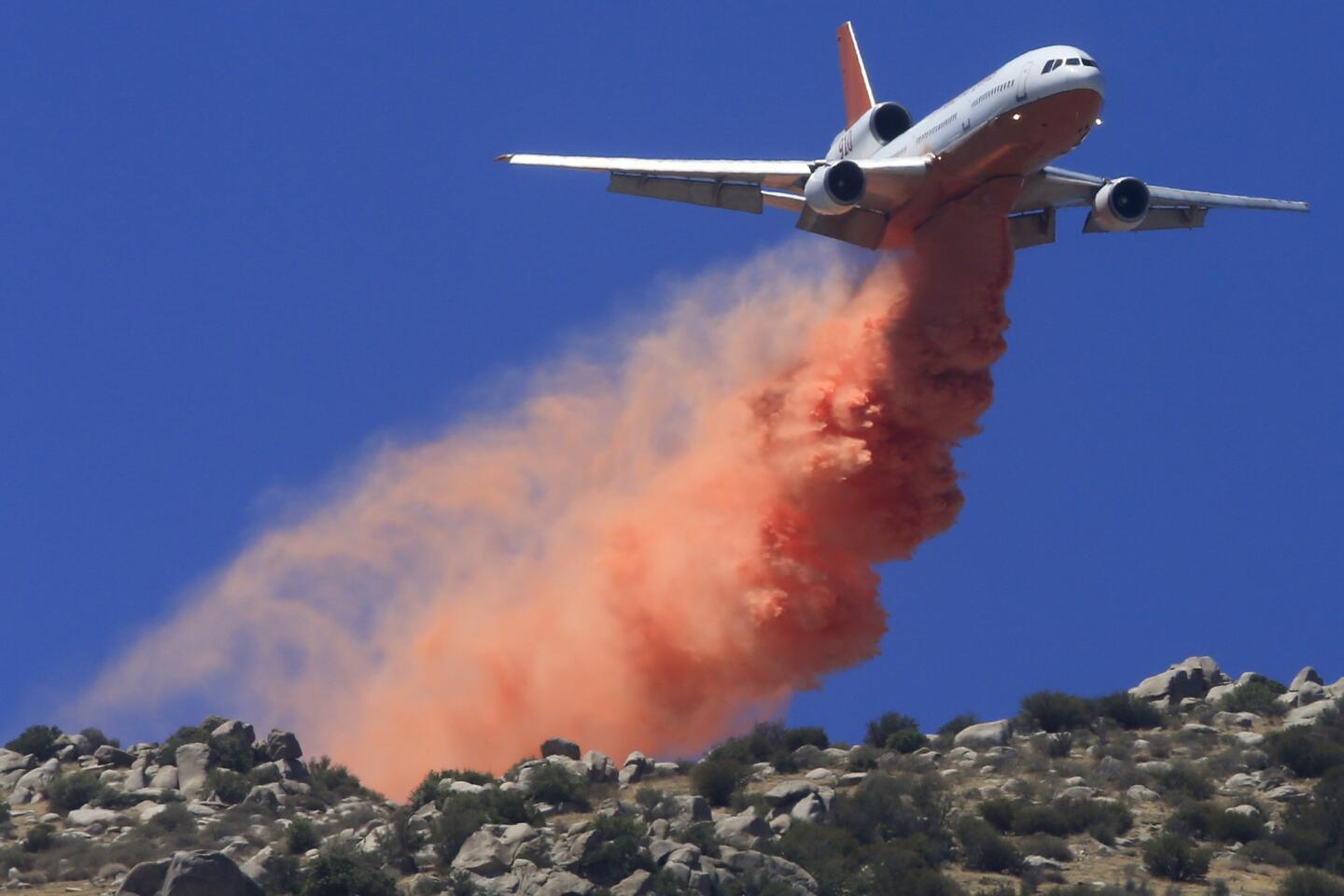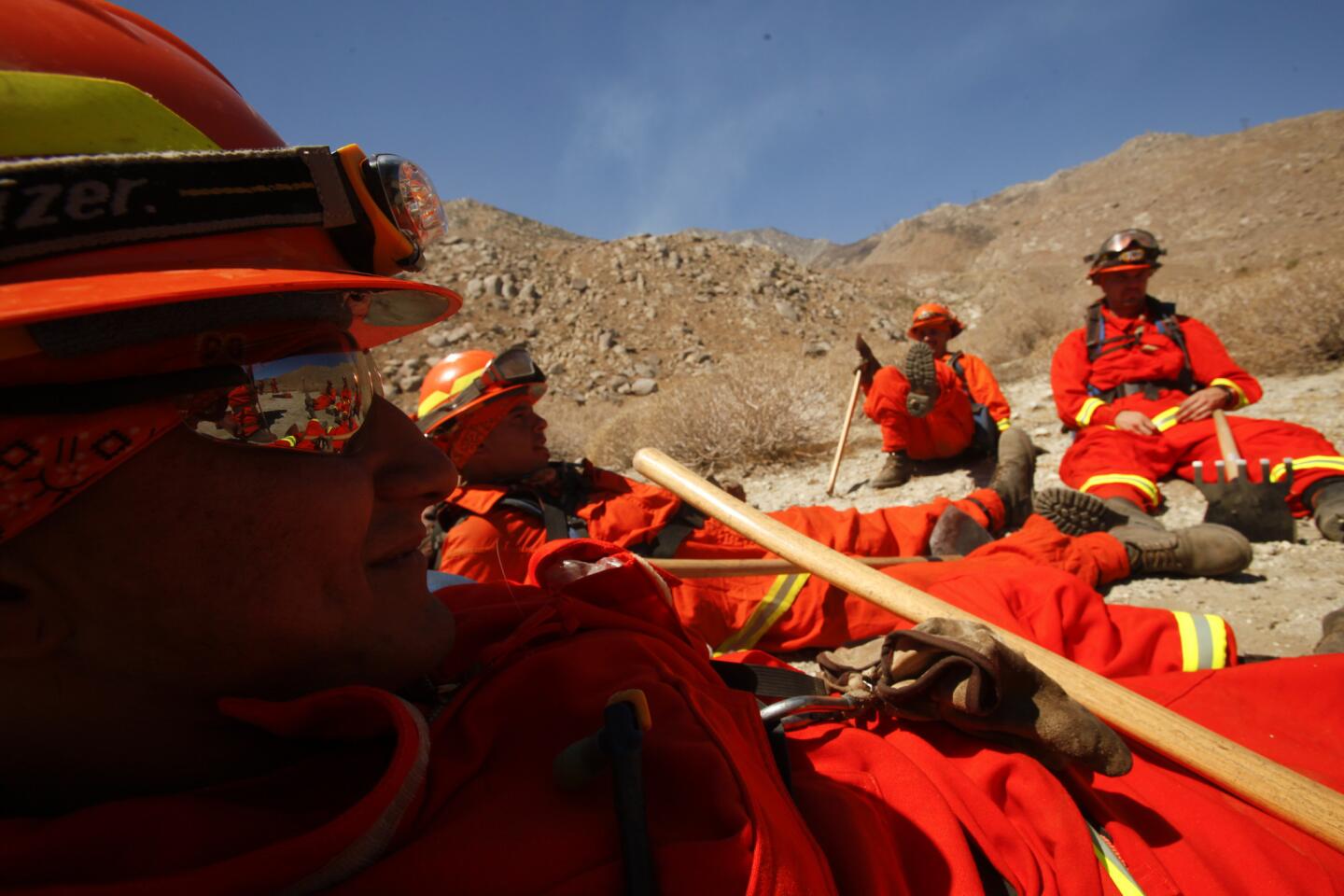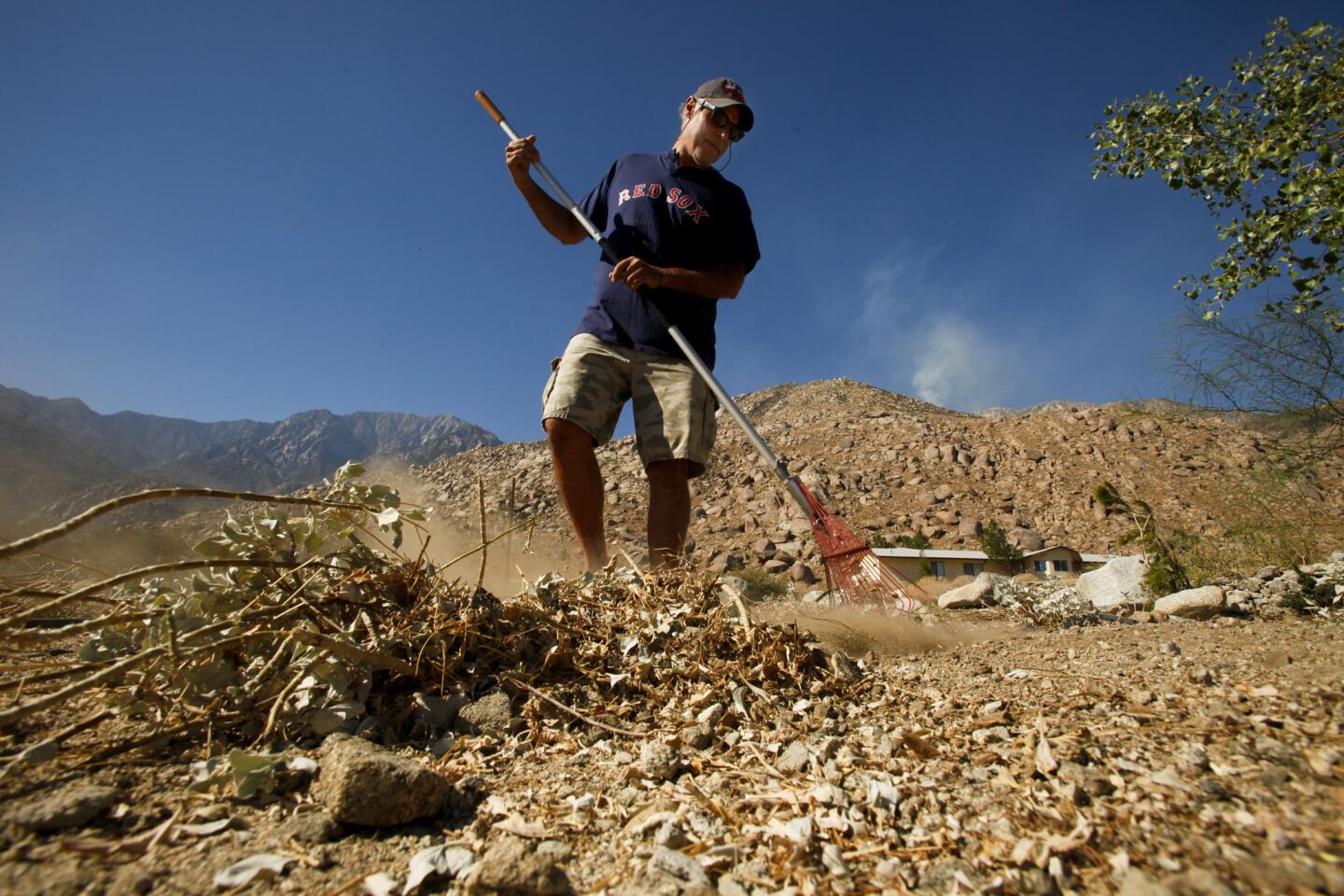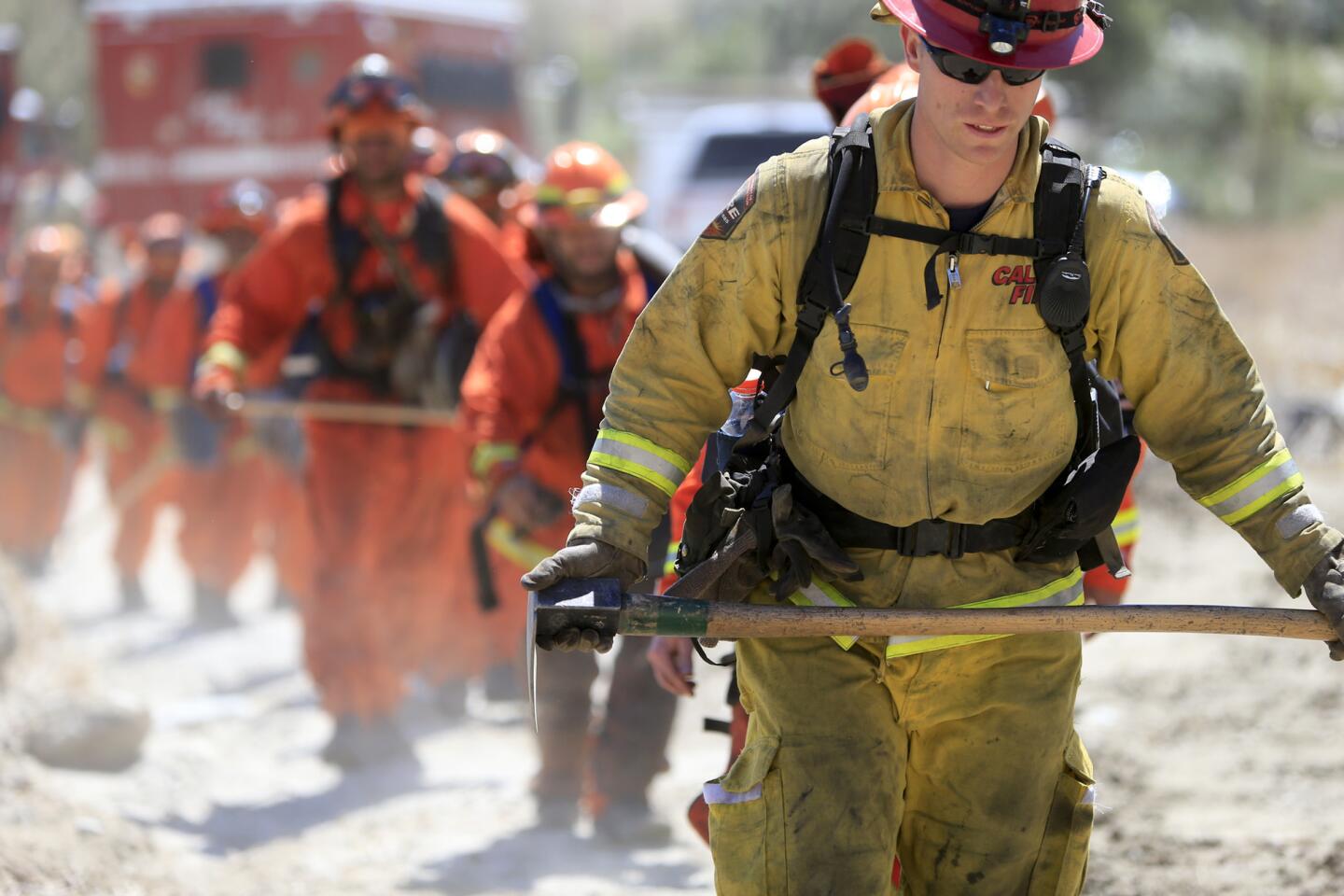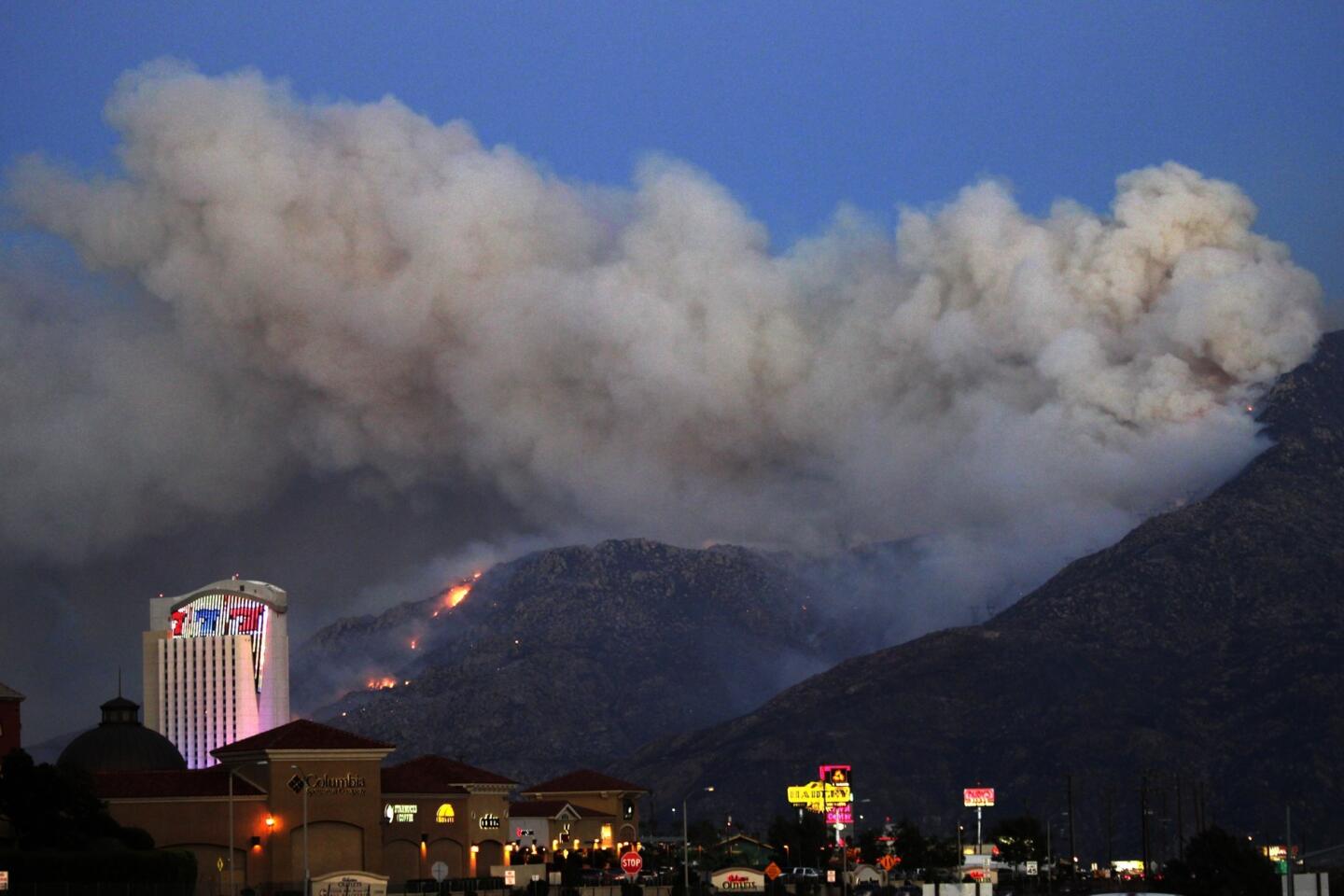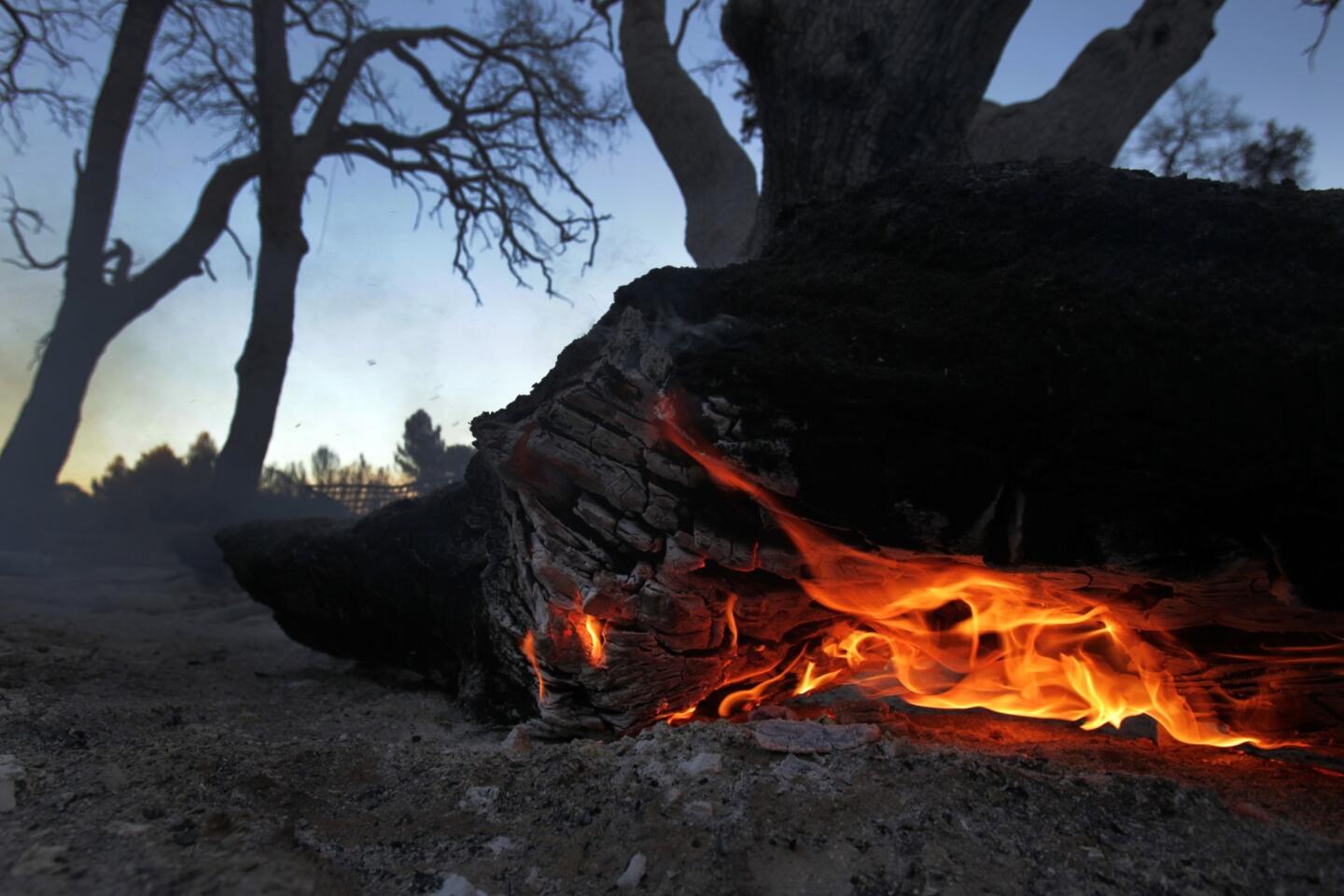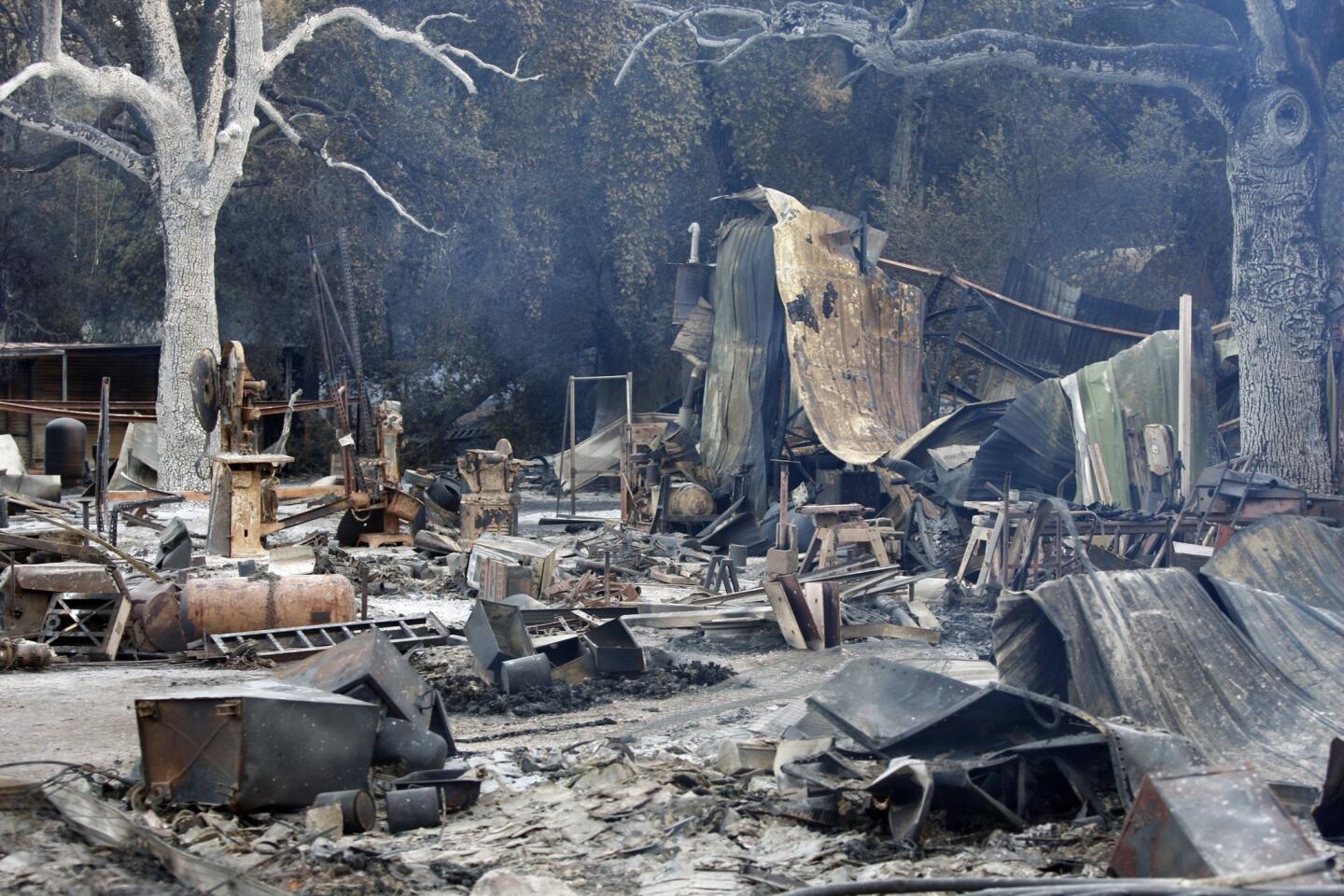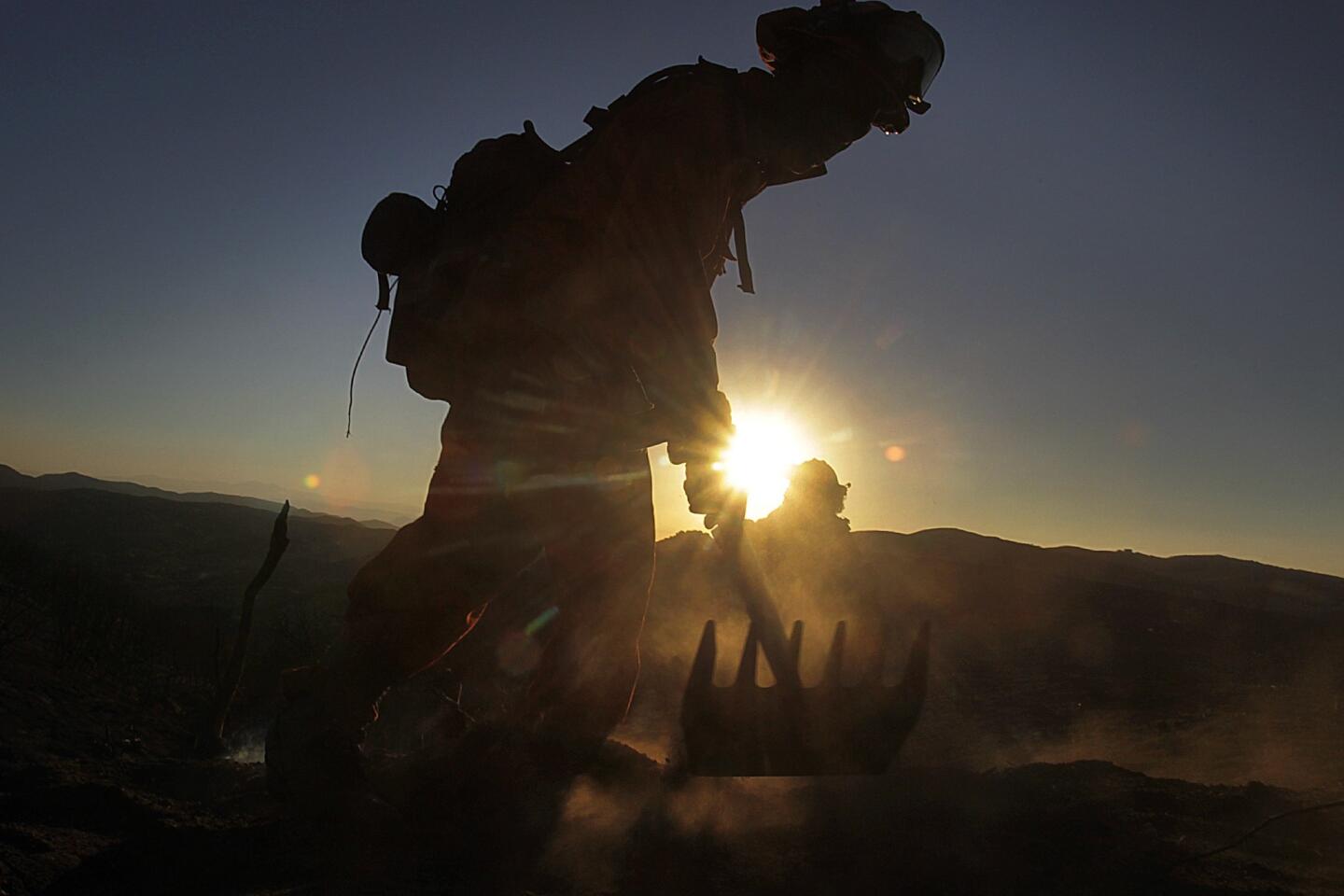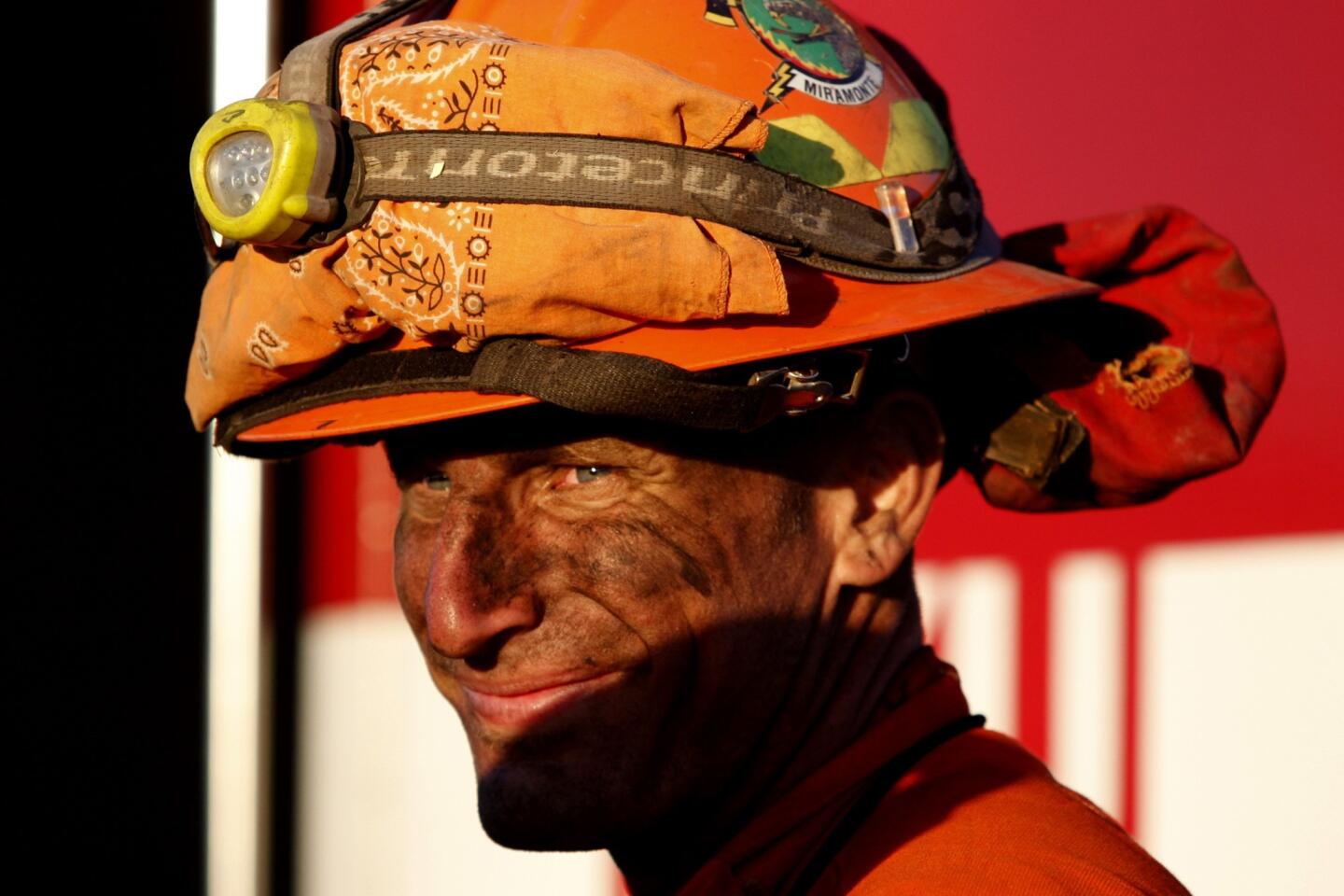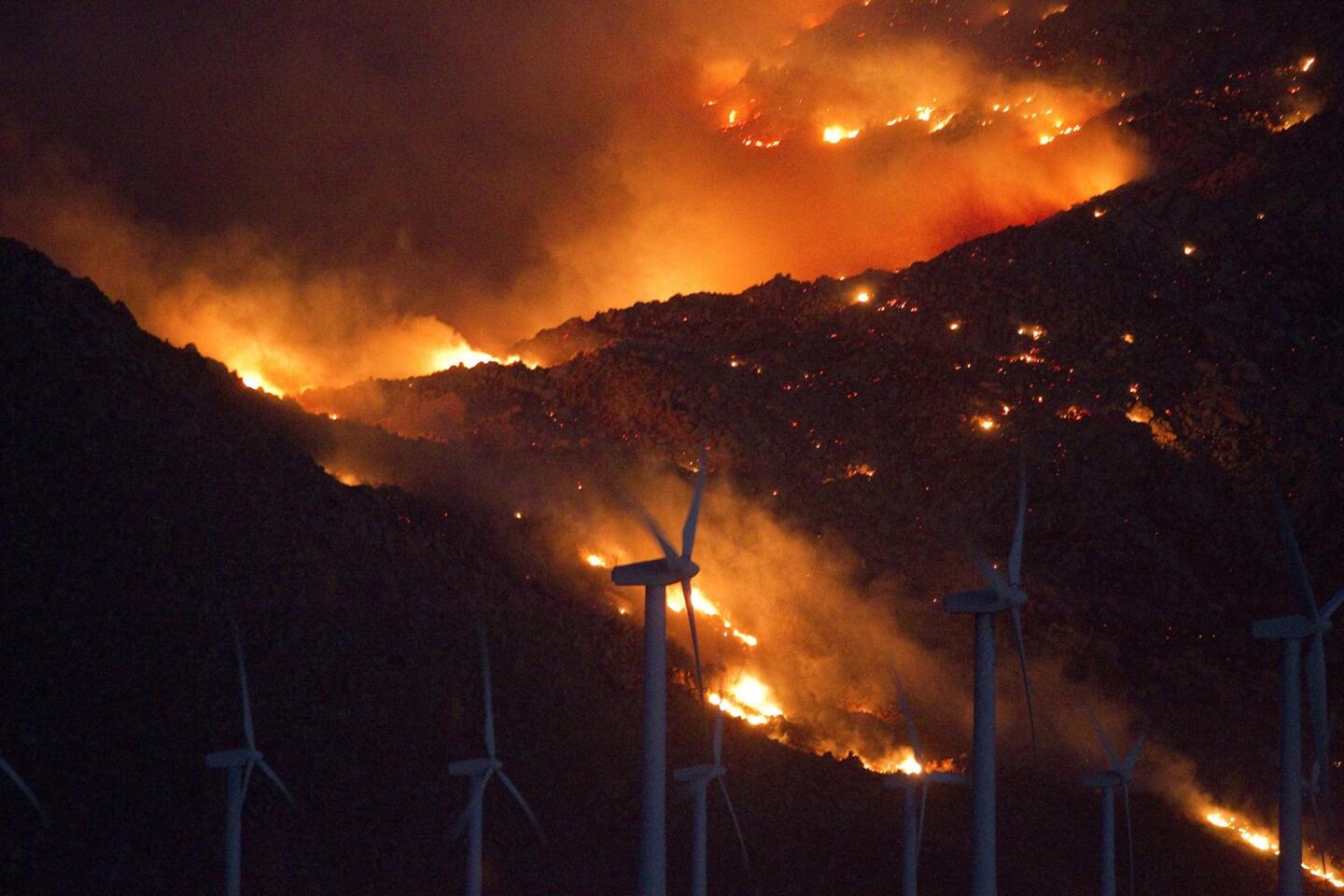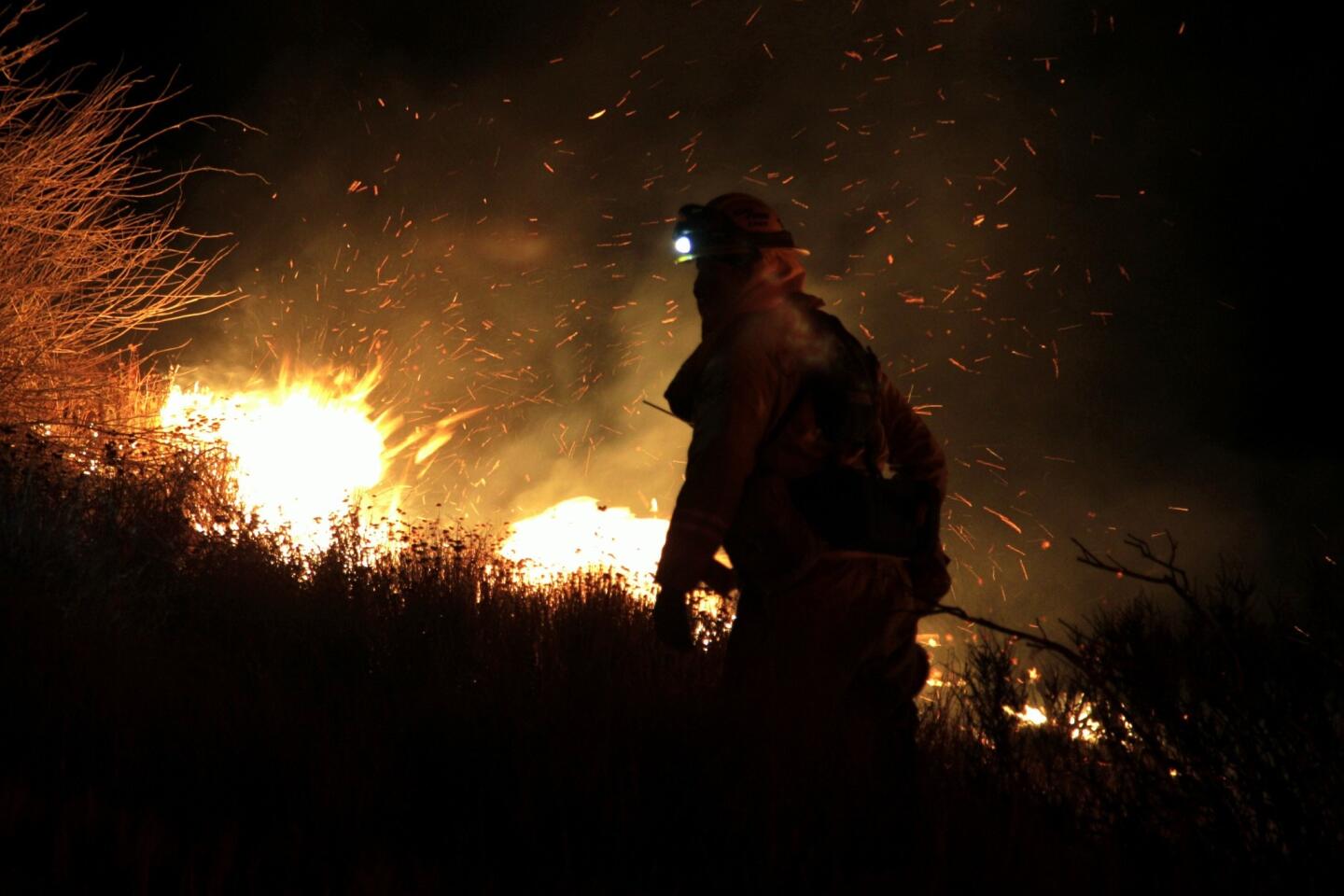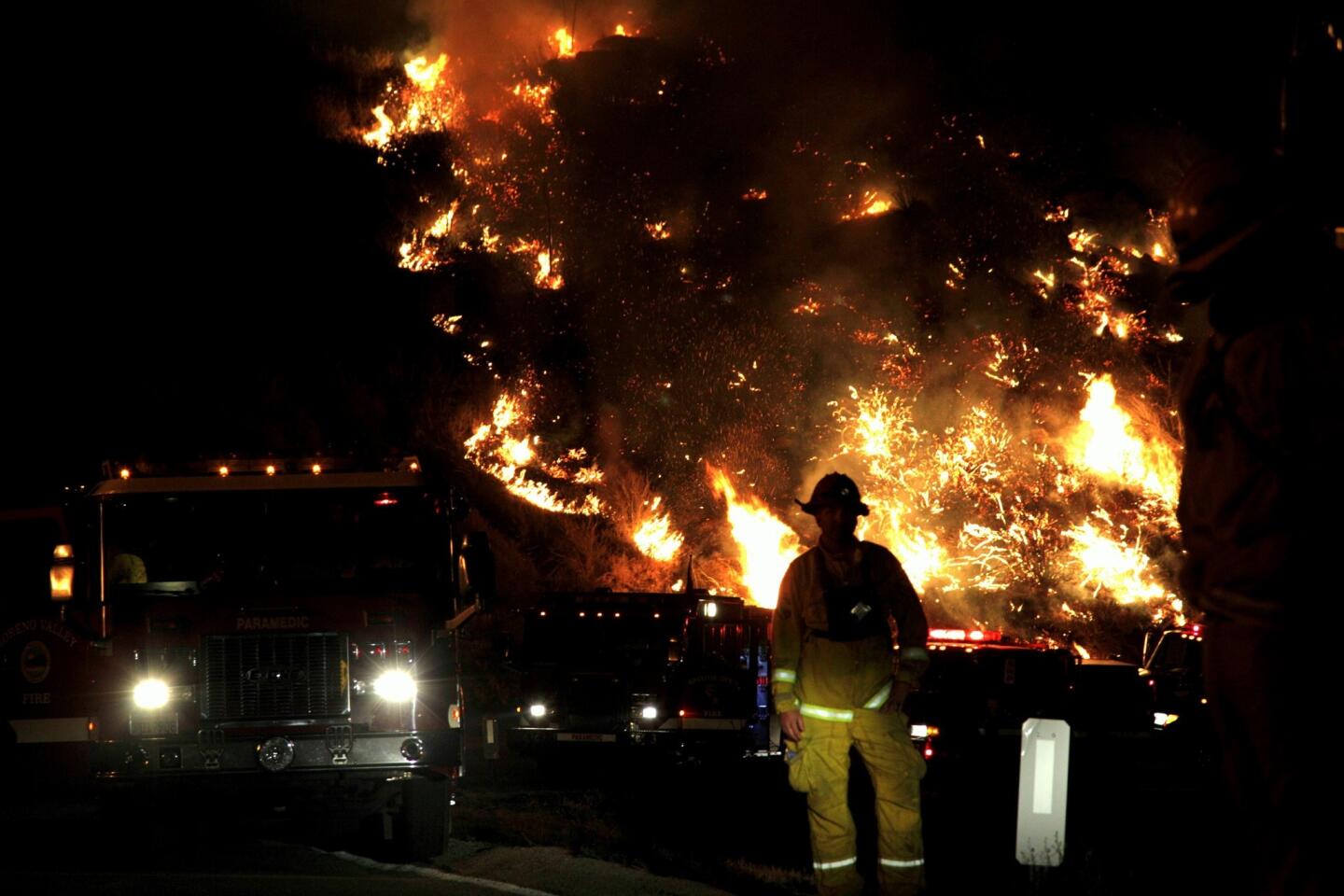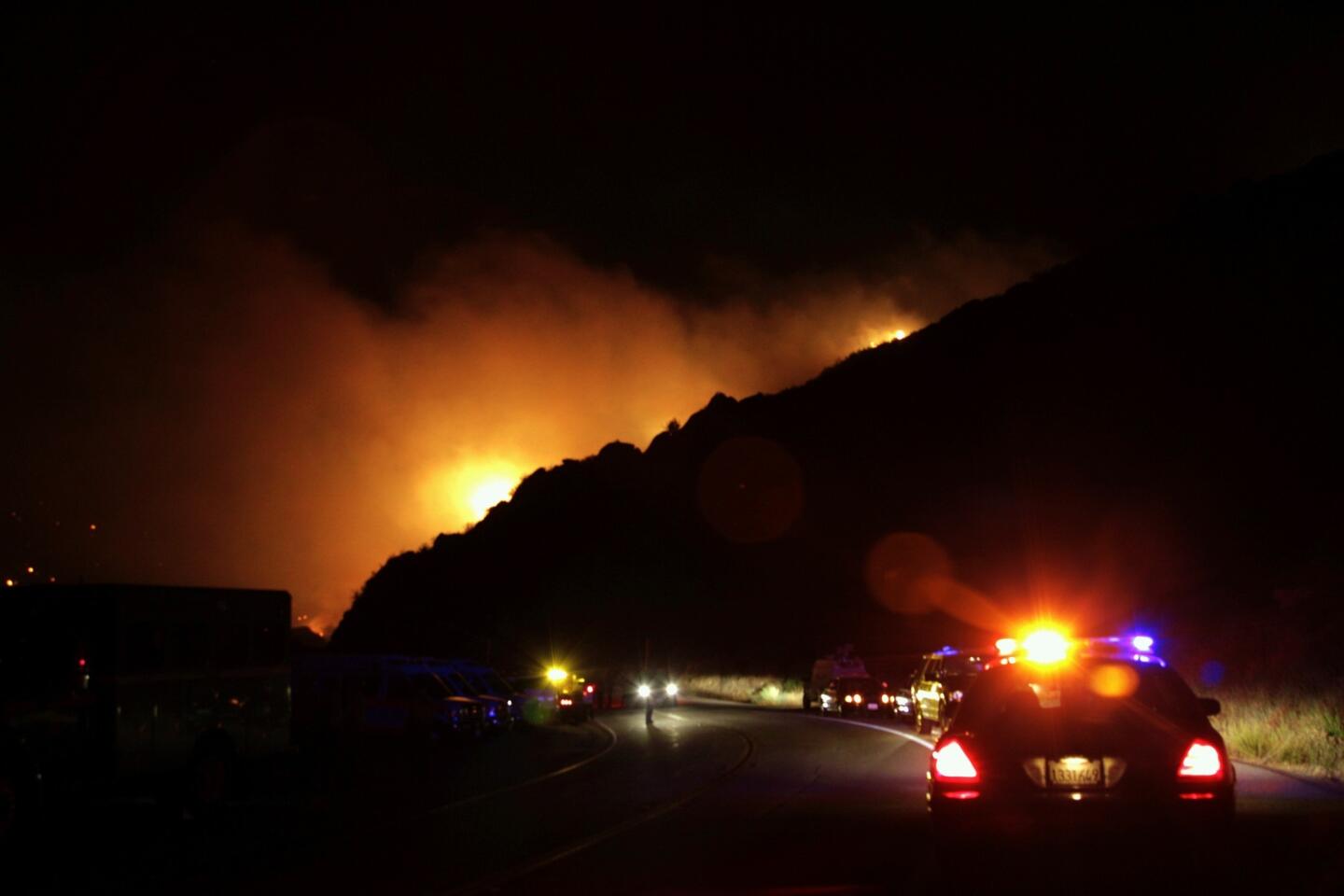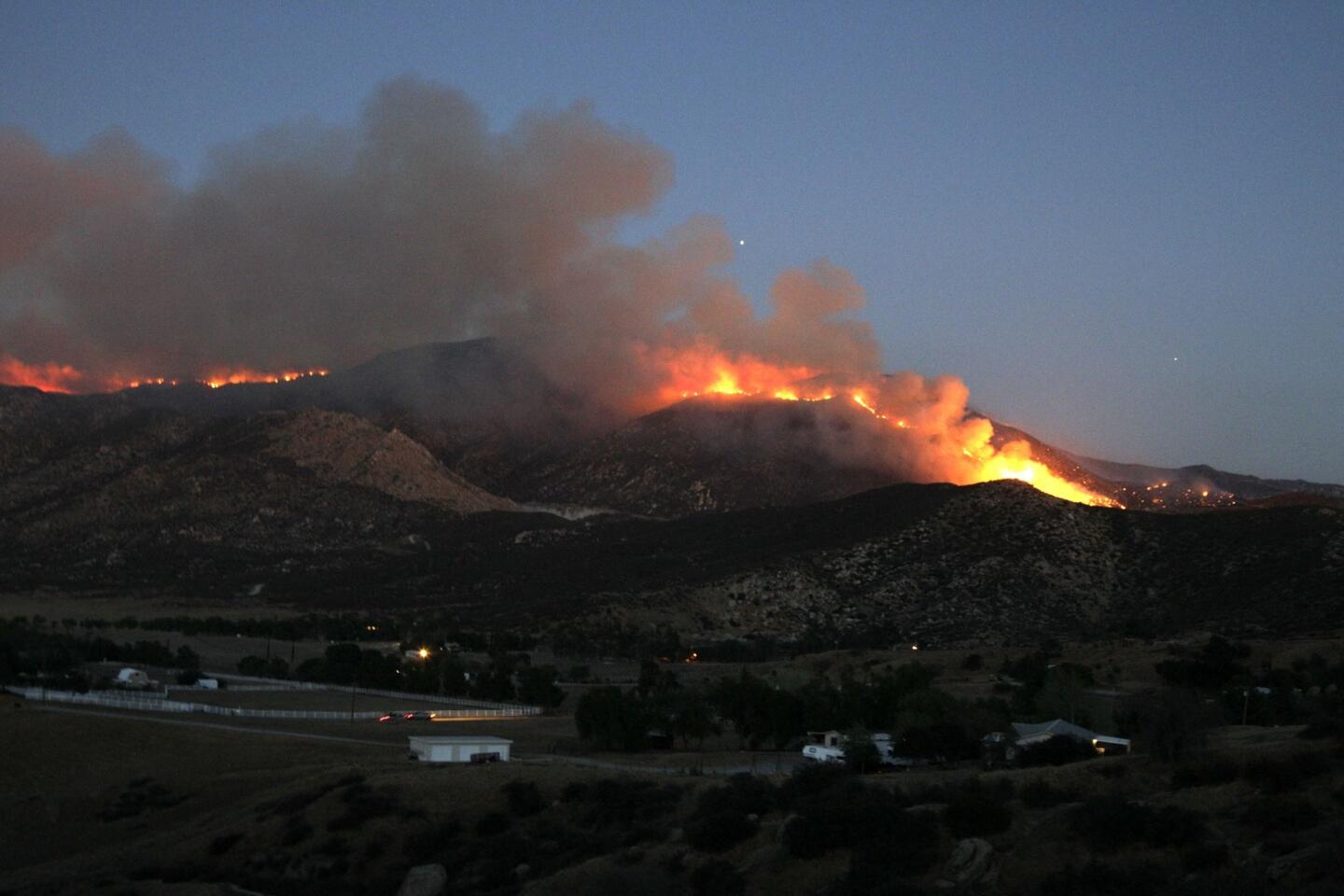Silver fire: Multiple factors created dangerous, fast-moving fire
When the Silver fire ignited about 2 p.m. Wednesday, officials say the stage was set for explosive growth that initially overwhelmed residents and the emergency crews sent to get them out of harm’s way.
The Silver fire raged from 300 acres in its infancy to 5,000 acres just three hours later, a feat assisted by topography that runs parallel to the prevailing winds, literally putting the wind at the fire’s back, which pushed it rapidly over steep terrain, outbuildings, homes and vehicles.
With the fire lines spreading rapidly and exits cut off by the flames, emergency crews were forced to ask some residents to “shelter in place” until firefighters and sheriff’s deputies could safely escort them out.
One resident had to be airlifted to a hospital after being burned “head to toe” in what CalfFire Battalion Chief Julie Hutchinson called a “very tragic situation” in an interview with KTLA. The condition of the victim could not immediately be determined.
“As we were starting to bring the equipment, the fire had already made runs off the flats and toward the communities in the San Jacinto Mountains,” CalFire spokesman Daniel Berlant said. “We had a lot of resources thrown on this fire early, but it was still a very fast-moving fire.”
One thing is clear, a confluence of ingredients, including tinder-dry conditions and steady winds, combined to create a monster of a fire in short order -- one that at last count had destroyed or damaged at least 15 structures and claimed scores of pets.
Four firefighters have also been injured battling the blaze, which as of Thursday afternoon had scorched 10,000 acres and was just 10% contained.
“This is a different side of San Jacinto Mountains,” Berlant said. “This fire has definitely grown a lot faster than the one last month, in general.”
In that blaze, the Mountain fire, more than 27,000 acres of chaparral and timber were scorched near Idyllwild, and multiple buildings – including mobile homes, a commercial building and several outbuildings -- were destroyed.
Firefighters were able to finally get a handle on the fire after cooler and wetter-than-normal conditions gave them a break.
In the case of the Silver fire, inaccessible rugged terrain, dry conditions and steady wind have combined to make its spread relentless, officials said.
According to CalFire Deputy Director Janet Upton, it’s a worsening trend.
The fires this year have been noticeably more intense since May, she said, noting that 11 of California’s 20 worst fires in history have been in the last 10 years.
According to CalFire, roughly 80,000 acres across the state have burned so far this year. At the same time last year, that number was 39,386.
“The intensity isn’t being caused by winds, they’re caused by fuel,” Upton said. “They’re causing fire behavior to be extreme.”
ALSO:
Students rally to support gay teacher fired from Catholic school
Costa Mesa City Hall proposes deep cuts in workers’ pay, benefits
Amber Alert: Washington, Oregon police chase tips on murder suspect
jason.wells@latimes.com
Follow: @jasonbretwells / Facebook / Google+
More to Read
Sign up for Essential California
The most important California stories and recommendations in your inbox every morning.
You may occasionally receive promotional content from the Los Angeles Times.
